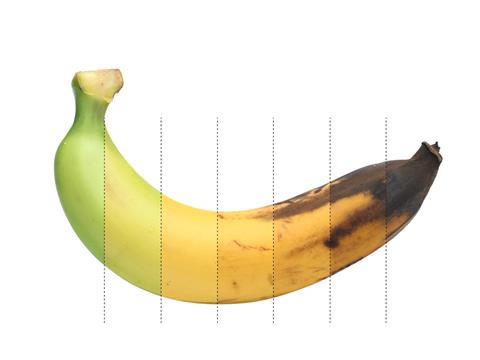
As every government, agency and environmental group keeps telling us, food waste is a monumental problem. Globally, 1.3 billion tons of food is lost or wasted every year, or 30% of total production by most estimates. But maybe you did not realise that that is an amount equal to the weight of 217 million elephants, as a recent report from India revealed.
A new biotech company, based in Chennai, India, GreenPod Labs has developed a product that, it says, can help to extend shelf life of fruit and vegetables while being safe and cost-effective, thus more appealing to Indian food producers. The solution comes in a small sachet that contains some powerful plant-based ingredients which also prevent microbial growth on food items, it claims.
CEO of the company, Deepak Rajmohan explains that he started the company in 2019 having studied and then worked as a food scientist in the USA for three and a half years. The initial product he decided to develop for India was a solution for cold storage, but he soon realised that high-cost solutions would not work for the Indian market.
So he looked at a new technology, active packaging, which he had seen developing in the USA where compounds are released or absorbed to keep the food intact in a cost-effective way.
GreenPod’s product is a small packet, similar to the silica sachets found inside many products. These sachets contain proprietary formulations that contain plant extracts and edible ingredients. When dropped near the fruit and vegetables they release compounds that slow down the ripening rate and inhibit microbial growth.
The science used in this technology is a defence-based mechanism that is new and required a lot of R&D, he says. It took 3-6 months to develop the first product and since then it has been in the process of changes and upgrades based on results.
The compounds are made from plant-based edible products like extracts from corn and potato. Many Indian spices are also being used. Similarly, compounds are extracted from plants, leaves, etc.
In total, about 10-15 ingredients are used for each product. The formulations differ from product to product, as each crop has its own unique features, like water content or rate of ripening. So, based upon the specific analysis of each crop, a specific compound is created.
Fruit like a banana spoils because of over-ripening while fruit like a strawberry or fig spoils because of microbial growth, says Rajmohan. The sachet controls both. When fruit and vegetables are stored in a crate after harvesting, the packet is dropped in to retain quality throughout the supply chain and increase its shelf life. If it is introduced at a later stage, then it controls the ripening rate.
The amount of crop which can be preserved by one sachet differs for different crops – for tomatoes it is 5-7 Kgs, while for figs it is 3-4 kgs. On average 1 sachet protects 5-7 kgs of produce.
One insight that drove the development of the product is that the food waste problem in India and the USA is completely different. In the USA 35% of the food waste happens after it reaches the consumers whereas in India the 40% waste occurs before reaching the consumers.
At present GreenPod is working with 25-30 large customers in India which are actively looking for solutions to this problem. The current infrastructure in India, using cold storage, has capacity to hold 10-12% of the total production. Out of that 70-80% of the capacity is for potatoes. So there is a great need for an alternative solution.
This article was created in collaboration with AIPIA (the Active and Intelligent Packaging Industry Association). Packaging Europe and AIPIA are joining forces to bring news and commentary about the active and intelligent packaging landscape to a larger audience. To learn more about this partnership, click here.














No comments yet